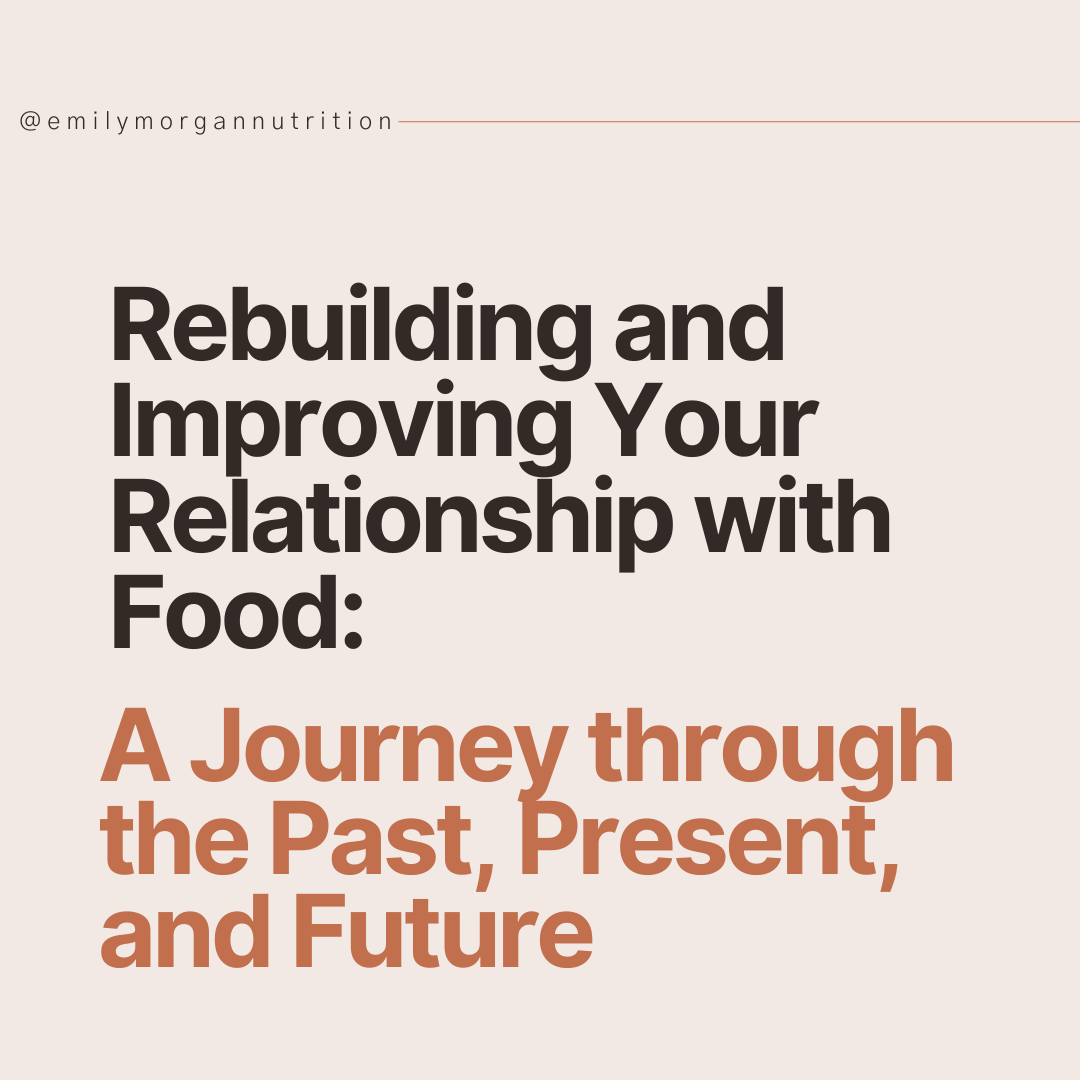Rebuilding and Improving Your Relationship with Food: A Journey through the Past, Present, and Future
Rebuilding and improving your relationship with food doesn't happen overnight. As a dietitian nutritionist with a nutrition coaching business, I know that it takes time, practice, and relearning. That's why I want to share a guide to help you optimize your nutrition journey. A great place to start is by thinking about the Past, Present, and Future. These are three times in our life that hold different experiences and meaning. Each one can help guide us to a better relationship with food.
Past:
When we begin in the past, we think about your past relationship with food and past experiences. Childhood experiences can impact our habits with food many years into the future. For example, having a traumatic experience with a certain food group at a young age can lead to an aversion to said food as an adult. Same thing can be said if dinners as a young kid were in front of the TV have now turned into only being able to have a meal if there is a video or screen nearby. Another way to look at how our past can impact our relationship with food is the way we have been spoken to. If you grew up in a home where your parents or siblings would body shame themselves or each other (ie: comments like "ugh, I look so fat. I'm not eating dinner tonight." or "Did you lose weight? You look great!" These comments that may have seemed unimportant in the moment may have led to negative self-talk or poor body image in your future self. Our past experiences have the ability to impact our present and future relationship with food, both in a positive and negative way. However, we can learn from them. We can find the root cause of a damaging behavior and begin to reroute the thought process. If eating dinner in front of the TV is something that is reminiscent of home or makes you feel comforted, maybe we can try calling a friend or family member before or after meal times. Lastly, if we have a past experience where we felt like we could've done something differently we can use that as a learning opportunity. For example, traveling can be a hard time to keep up with our nutrition and health goals. But if we can look back to a past travel and ask ourselves "what went right?" or "what went wrong?" We can learn through our past experiences.
Present:
Living in the moment and being present is hard to do in a world where everything is online. However, taking a step back to really think about how you can be present is key to success. Journaling is a great way to do this. Try writing out your intentions for the day, what you are grateful for and what you would like to work towards. Being present is key to mindful eating, which can lead to improvements in weight, health, and satisfaction of meals. The present moment is where we can make changes to our lifestyle and work towards our goals. Setting realistic and achievable goals is helpful to short term and long term successes. Another tool to be present is distraction-free meal times. If we can show up to a meal 100% present and aware of what we were eating, where it came from, what it tastes like
Future:
Looking towards the future is also important when it comes to rebuilding and improving your relationship with food. Setting small, achievable goals is crucial to making sustainable changes over time. Some examples of these goals may include meal planning ahead of time, trying new recipes, and incorporating more fruits and vegetables into your diet. These small changes can have a significant impact on your overall health and well-being. Try and picture what you want your future relationship with food and nutrition to look like. Working with a dietitian can help you to figure out what changes need to be made to help get you there. Having someone to hold you accountable and keep you on track can make a big difference in achieving your goals. This is where a dietitian can be especially helpful. We can provide guidance, support, and personalized recommendations to help you achieve your goals and improve your relationship with food.

